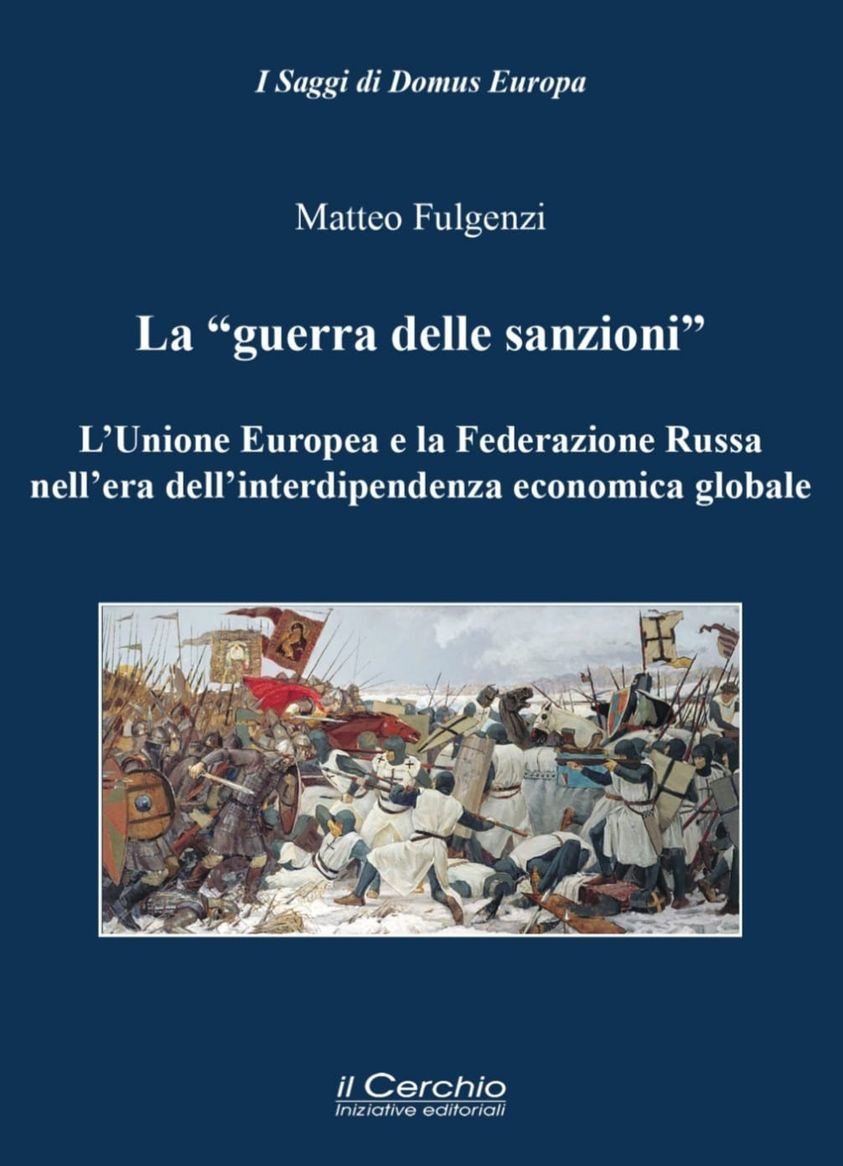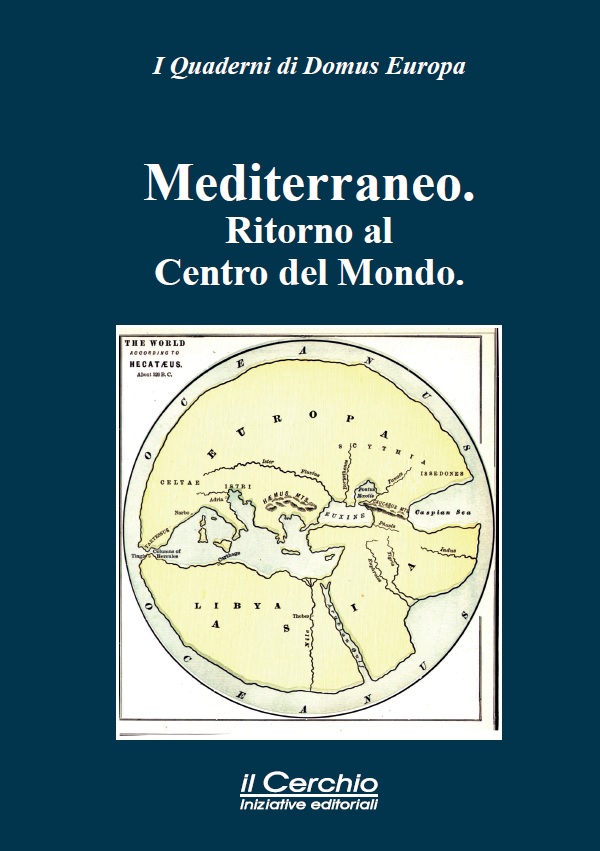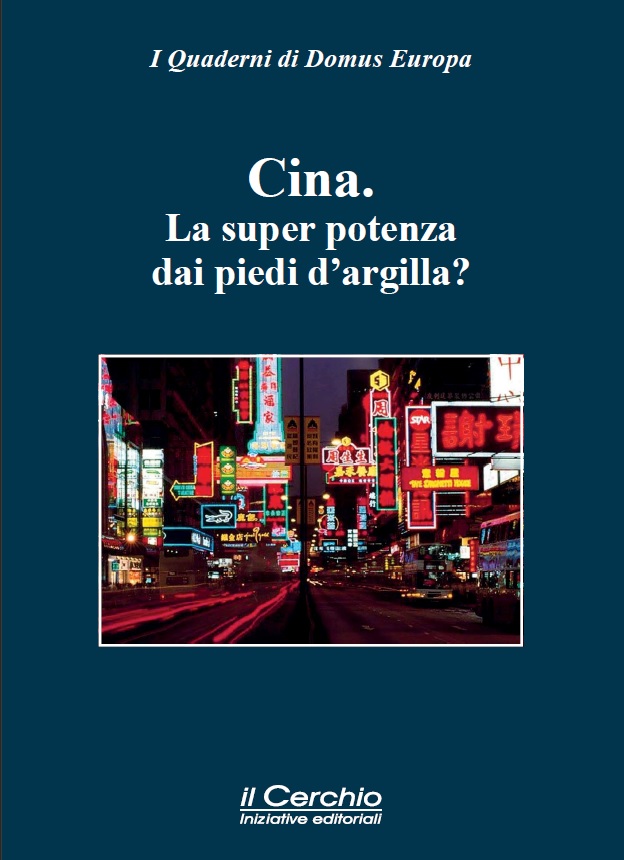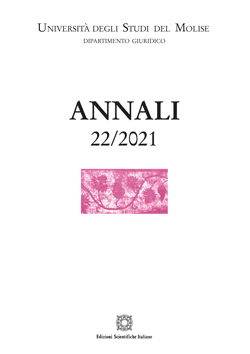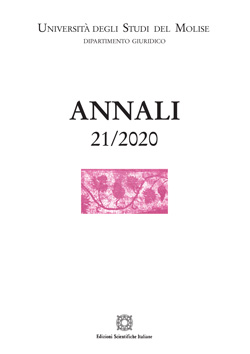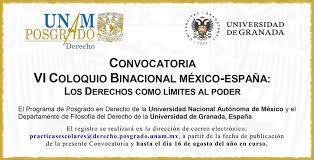Questo studio indica il diritto internazionale come fattore-chiave per comprendere, affrontare e superare la crisi geopolitica in atto in Ucraina. La presente ricerca, infatti, analizza la natura giuridica e le effettive implicazioni delle misure economiche restrittive unilaterali adottate nell’ambito della “guerra delle sanzioni” tra l’occidente e Mosca, identificando infine l’OMC come quadro giuridico e istituzionale per la possibile normalizzazione delle relazioni tra l’UE e la Russia.
THE “SANCTIONS WAR”. THE EUROPEAN UNION AND THE RUSSIAN FEDERATION IN THE ERA OF GLOBAL ECONOMIC INTERDEPENCE
This study indicates International law as the key-factor for understanding, addressing and overcoming the current geopolitical crisis over Ukraine. This research, indeed, analyzes the juridical nature and the actual implications of the unilateral restrictive economic measures adopted in the context of the “sanctions war” between the West and Moscow, finally identifying the WTO as a legal and institutional framework for the possible normalization of EU-Russia relations
AN INTRODUCTION:
Economic cooperation between the European Union (EU) and Russia is threatened by the contrast between the conflicting paths of political and economic integration promoted by Brussels and Moscow in the post-Soviet space. The annexation of Crimea by the Russian Federation was not recognized by Western countries and prompted the adoption by the West of international sanctions against Russia in reaction to what has been widely considered as an “aggression” by the latter towards Ukraine through the illegal use of armed force. For its part, Russia introduced its own “countermeasures” against the West in reaction to the alleged attack of Western countries “on the Russian flag” and in response to what Moscow calls as Western “double standards” in the interpretation of International law.
The West has explained the introduction of its restrictive economic measures as a legitimate reaction to the violation of imperative international rules of “jus cogens” by Russia. Furthermore, both sides of the dispute have also justified the imposition of the reciprocal regimes of international economic sanctions as an appeal to the right to protect “essential security interests” in “time of emergency in international relations”, provided for Wto’s Members by art. XXI:(b)(iii) of the GATT.
While the legitimacy of international unilateral economic sanctions adopted autonomously by individual States outside the decision-making framework of the United Nations Security Council remains controversial under International law and shows points of inconsistency, trade between the European Union and the Russian Federation continues to be affected by the implications of the current “clash of power” between the West and the Kremlin. However, despite the deterioration of mutual relations following the annexation of Crimea and the insurrection of pro-Russian rebels in the Donbass region, along with the beginning of a long-lasting and extremely costly exchange of sanctions over Ukraine, the Eu and Russia are still deeply economically interdependent.
By offering an overview of the historical background of relations between Russia and the EEC/EU, this work analyzes the legal features and the actual implications of the unilateral coercive economic measures adopted by the international players involved in this “sanctions war”. It also takes into account the coordination of EU provisions with the international sanctions adopted by the United States, considering the protectionist purposes that the latter may disguise, as well as the controversial issue of the extraterritorial effects of the economic measures imposed by Washington.
Moreover, this research sheds light on how the lack of official relations between the European Union and the Eurasian Economic Union (EAEU) has raised a number of inconsistencies over time, even in the very implementation of the reciprocal regimes of economic sanctions between Brussels and Moscow. Thus, some critical features of the so-called “smart sanctions” are considered under international human rights law, being such restrictive measures targeted by the Eu at specific individuals and entities from Russia and Ukraine. Special attention is also paid to the largely “sectoral” nature of the international sanctions introduced against Moscow, being most of the restrictions imposed by the West addressed to specific economic sectors of the Russian Federation.
This work also analyzes the most relevant legal aspects of the litigations involving Russia and Ukraine before the jurisdiction of the main international courts as a consequence of the Crimean crisis. This study actually indicates International law as the key factor for understanding, addressing and overcoming the current geopolitical crisis between the Russian Federation and the West. Therefore, it identifies the law of the “Community of States” as a fundamental horizon of juridical consistency whose intrinsic effectiveness should not be affected by the ineffectiveness shown by prolonged reciprocal restrictions regimes in determining a plausible way out of this exhausting “sanctions war”, even now that a considerable period of time has passed since its inception.
In this perspective, this research focuses on Eu-Russia relations and points out that both the Eu and Russia have officially pledged to abide by the rules and principles of the World Trade Organization (WTO). In this context, the WTO’s Agreements can provide the legal and institutional basis for overcoming the present “stalemate” in the confrontation between Brussels and Moscow. This could also prove true if the EU and Russia sought to give solid and coherent legal substance to a broader compromise that both sides could even try to reach first at the political level. Thus, this research investigates the role of the legal and institutional framework of the WTO as a possible means to resolve the current international “impasse” in the geopolitical crisis over Ukraine. In fact, the WTO Dispute settlement system can prove to be an effective tool for removing mutual sanctions and restoring the conditions for trade cooperation between the EU and Russia.
Indeed, the WTO Dispute settlement mechanism allows for consistent interpretation and application of WTO rules and procedures through the use of established legal precedents and principles (i.e., the WTO’s “acquis”) with specific regard to the adoption of restrictions on international trade in accordance with the provisions of the WTO’s Agreements, as well as the imposition of economic countermeasures in legitimate invocation of the GATT Security Exceptions (see the findings of the DS475 case and the criteria identified by the panel in the DS512 case). Significantly, this can help reduce the “geopolitical” distortions currently affecting international trade relations and counter the misuse of commerce (and multilateral trade regulations) as a unilateral weapon of “market destruction” and “hybrid warfare” in the context of today’s global economic interdependence.
FULGENZI M., La “guerra delle sanzioni”. L’Unione Europea e la Federazione Russa nell’era dell’interdipendenza economica globale (Il Cerchio ed., 2021), 720 pp., ISBN: 978-88-8474-605-4, disponibile/available on-line: http://www.ilcerchio.it/la-guerra-delle-sanzioni-l-unione-europea-e-federativa-russa-nell-era-dell-interdipendenza-economica-globale.html oppure/or https://www.amazon.it/«guerra-sanzioni»-Federazione-dellinterdipendenza-economica/dp/8884746051
L’AUTORE: Matteo Fulgenzi, classe ’82, è Dottore di Ricerca in “Innovazione e gestione delle risorse pubbliche” (XXXIV ciclo, curriculum “Governo e relazioni internazionali”), Ricercatore e Cultore della Materia presso la Cattedra di Diritto Internazionale dell’Università degli Studi del Molise e la Cattedra di Diritto dell’Unione europea dell’Università del Salento. Laureato con Lode in Giurisprudenza presso l’Università del Salento e in Management Internazionale presso l’ICN Business School – Grande École de Management di Nancy (Francia) e l’Università MGIMO di Mosca per le Relazioni Internazionali (Federazione Russa), ha ricoperto per anni il ruolo di Export-manager nell’organigramma di prestigiose aziende del Made in Italy.
Parole chiave: Responsabilità dello Stato; Contromisure; Sanzioni economiche internazionali; Risoluzione delle controversie internazionali; Organizzazione mondiale del commercio (OMC).
Key words: State responsibility; Countermeasures; International economic sanctions; International dispute settlement; World Trade Organization (WTO).
Matteo Fulgenzi, Ph.D.
Recensioni:
https://www.opiniojuris.it/la-guerra-delle-sanzioni

